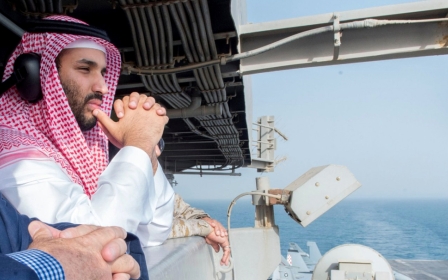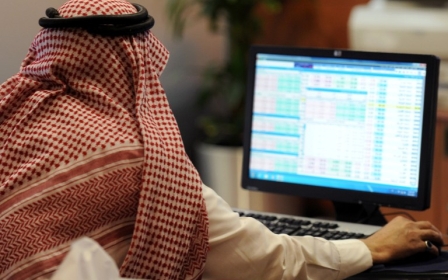Saudi may impose taxes, open country to human rights organisations

Saudi Arabia plans to cut spending in the country, potentially borrowing money and imposing taxes for the first time, according to a detailed programme sent to the Telegraph by King Salman and his advisers.
The statement also suggests that the kingdom will open its doors to international human rights organisations and acknowledges that the issue of women's rights has been mismanaged.
"The Saudi women issue has become a global issue of public opinion and it seems that we have lost a lot in this case [in terms of public opinion]," the programme reportedly says. "[But this] was fair because we did not improve the way we managed the issue."
The statement comes after the Saudi leadership - with coup rumours, a Hajj disaster and economic concerns - has been under increasing pressure in recent months domestically and internationally.
In September, MEE revealed that a senior member of the Saudi royal family had circulated a letter among princes expressing fear that the monarchy could collapse unless the king was urgently replaced.
Low oil prices have also sparked concerns that the country's growing budget deficit could rapidly erode its reserves unless drastic action is taken.
The kingdom has also come under scrutiny following the crushing of pilgrims at the Hajj on 24 September. Saudi officials originally reported that 769 people died in the incident, but an MEE investigation found that the death toll was at least 2,432.
The case of 17-year-old Ali al-Nimr, who has been sentenced to death by beheading and crucifixion for his involvement in Arab Spring-inspired protests in eastern Saudi Arabia in 2012, has also drawn international criticism, and is thought to have led to the UK dropping a multi-million dollar prison consultancy contract with the country.
Days after the contract was cancelled, the Saudi ambassador to the UK, Mohammed bin Nawaf bin Abdulaziz, wrote a column, also published in the Telegraph, that said Saudi would not "be lectured".
"If the extensive trade links between the two countries are going to be subordinate to certain political ideologies, then this vital commercial exchange is going to be at risk," he wrote. "We want this relationship to continue but we will not be lectured to by anyone. Hasty decisions prompted by short-term gains often do more harm than good in the longer term."
The excerpts from the programme, published in the Telegraph on Thursday and apparently prepared by members of the royal court and the country's economic council, appear to take a much softer tone than Abdulaziz's letter.
It acknowledges that with 80 to 85 percent of Saudi's income reliant on oil revenues, the drop in the price of oil has caused them to think about borrowing money or potentially taxing citizens for the first time.
With more than 30 percent of the budget identified in the programme as waste, the officials appear to indicate that they plan to cut subsidies, increase spending on infrastructure and diversify income sources, including partnering with the UK, US and France potentially in the technology field.
Bill Law, a Gulf analyst and MEE columnist, said that defence minister and deputy crown prince Mohammed bin Salman - regarded as one of the most powerful figures in government - will have to navigate cautiously in weaning off Saudis from subsidies.
"The weakened economy is hurting ordinary people too and a quick and brutal subsidies slash would serve to fuel discontent," Law said.
On the issue of women's rights in the country, the programme, as reported by the Telegraph, says the country should have been more open to reforms, but was held back by "heritage and popular tradition". It was not clear whether any specific changes for Saudi women were detailed in the document.
"We have come a long way and cannot just underestimate efforts made in the last few years in enhancing the role of women in society and give them the rights they deserve," it reportedly says.
However, Law is not holding his breath that there will be drastic improvements regarding Saudi's rights track record.
"That is mood music for western allies but I doubt very much that there will be any shift in Saudi Arabia's atrocious rights record," he said. "Women will [only] see modest gains."
The officials stand by the sentence passed down to Ali al-Nimr and his uncle, Sheikh Nimr al-Nimr, who has also been sentenced to death by beheading.
"The al-Nimr family members pursued violence and attacks on security forces and government facilities beside terrorising civilians, hooliganism and vandalism," the statement reportedly says. "It is a clear criminal act that led to murders of police officers ... We have a right to maintain safety and security of our citizens and we cannot understand the demands to make it go unpunished."
Middle East Eye propose une couverture et une analyse indépendantes et incomparables du Moyen-Orient, de l’Afrique du Nord et d’autres régions du monde. Pour en savoir plus sur la reprise de ce contenu et les frais qui s’appliquent, veuillez remplir ce formulaire [en anglais]. Pour en savoir plus sur MEE, cliquez ici [en anglais].




